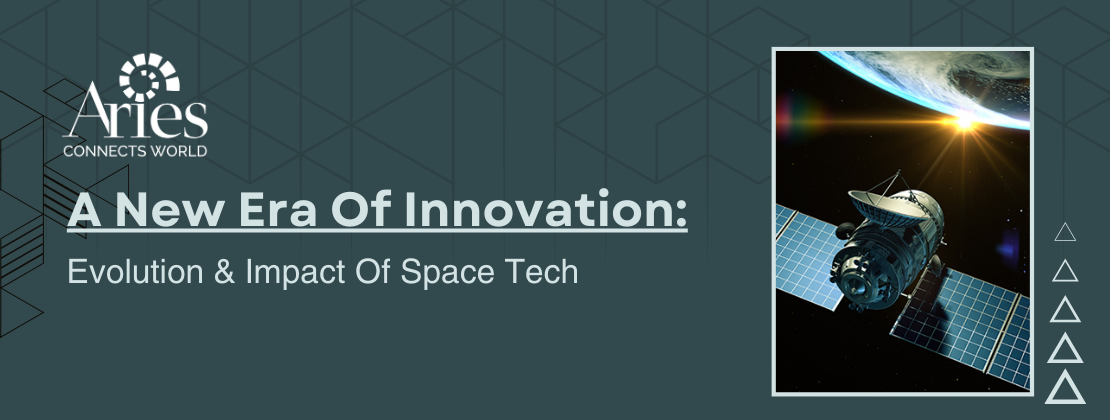
Apr 10, 2025. Home / Manchester / Marketing
The interaction with the cosmos is undergoing a revolution as humans find new ways to undertake it. The field of space tech continues to shape the future of exploration, communication, and global sustainability. It’s powered by early satellite launches and now cutting-edge advancements in artificial intelligence and robotics. As governments and private enterprises push the boundaries of innovation, space tech is no longer just a domain of astronauts and scientists—it is an integral part of industries ranging from agriculture to disaster management. Through this article, ACW Circle will take you to explore the evolution, significance, and future of space tech in reshaping our world and beyond.
The journey of space technology began with the historic launch of Sputnik 1 in 1957, marking the dawn of the space age. This milestone paved the way for advancements in satellite communication, weather forecasting, and global positioning systems (GPS). The Apollo program in the 1960s and 1970s showcased the immense potential of space exploration, leading to the first human landing on the Moon.
Over the decades, space technology has evolved rapidly, driven by governmental space agencies such as NASA, ESA, and Roscosmos. However, in recent years, private space tech companies have emerged as major players in the industry. Companies like SpaceX, Blue Origin, and Rocket Lab have revolutionized space travel by developing reusable rockets, reducing launch costs, and expanding commercial spaceflight opportunities.
OrbitalMapperAI has also joined the space tech revolution, focusing on Earth’s monitoring and sustainability. This innovation has led space technology into a new field where the focus will remain on the betterment of our planet.
Today, space tech extends far beyond exploration. It has become a crucial enabler of innovation across various industries:
One of the most transformative applications of space technology is satellite communication. With the deployment of satellite constellations like Starlink and OneWeb, remote areas worldwide now have access to high-speed internet. These advancements in space tech are bridging the digital divide and fostering economic development in underserved regions.
Satellites with advanced sensors and imaging technologies are crucial for monitoring climate change, deforestation, and natural disasters. Space tech enables real-time data collection, allowing scientists and policymakers to make informed decisions about environmental conservation and disaster response strategies.
Space technology has transformed modern agriculture by providing farmers with accurate data on soil health, crop conditions, and weather patterns. Space-based imaging helps optimize irrigation, reduce waste, and improve yield predictions, ensuring food security for growing populations.
As populations grow, urban expansion requires strategic planning. Space tech companies contribute to smart city development by providing geospatial data for infrastructure planning, traffic management, and sustainable energy distribution. These insights help create efficient, livable urban spaces.
The ambition to explore beyond Earth has driven remarkable advancements in propulsion systems, robotics, and life support technologies. Space tech companies are developing spacecraft capable of deep-space missions, with Mars colonization and lunar habitats no longer confined to science fiction.
The involvement of private enterprises in space exploration has led to a competitive and dynamic industry. Space technology companies have diversified the market, offering services such as space tourism, satellite deployment, and asteroid mining. SpaceX, for example, has pioneered reusable rocket technology, significantly lowering the cost of space travel.
Meanwhile, Blue Origin is focusing on sustainable space colonization. This wave of private-sector investment is accelerating the development of cutting-edge space tech solutions and making space more accessible than ever before.
Despite its vast potential, space tech faces several challenges:
|
Challenge |
Description |
|
Cost & Funding |
The high costs of research, development, and launch infrastructure remain a major hurdle for space technology companies. |
|
Space Debris Management |
With thousands of satellites orbiting Earth, space debris poses a significant threat to operational spacecraft and future missions. |
|
Regulatory & Ethical Considerations |
As commercial space travel and extraterrestrial mining gain traction, international space laws and ethical frameworks must evolve to ensure responsible exploration. |
The future of space tech holds limitless possibilities. Emerging technologies such as quantum communication, AI-driven space exploration, and nuclear propulsion could redefine humanity’s relationship with space. Additionally, space tourism, once a dream, is becoming a reality, with companies like Virgin Galactic and SpaceX aiming to offer commercial spaceflights in the coming years.
As space tech continues to advance, collaboration between governments, private space tech companies, and research institutions will be essential to unlocking new frontiers. Whether through interplanetary exploration, sustainable satellite networks, or revolutionary scientific discoveries, space tech is set to drive humanity into a new era of cosmic innovation.
From its origins in the mid-20th century to its present-day applications, space tech has evolved into a driving force of progress. Space technology influences countless industries, from telecommunications and agriculture to urban planning and environmental monitoring. With private space tech companies accelerating innovation, the possibilities for human expansion into space are more tangible than ever. As we look to the future, space tech will remain at the heart of scientific breakthroughs, economic growth, and humanity’s quest to explore the universe.
OrbitalMapperAI is a pioneering venture by ACW Circle into space tech, offering a product that helps study the climate, monitor the environment, and plan urban and rural areas, as well as agriculture & crops through geospatial intelligence. As a leading space tech company currently in this field, get in touch to know more about our offering.
Space tech companies play a significant role in improving daily life by enhancing communication networks, enabling GPS navigation, supporting weather forecasting, and advancing medical technologies through space-based research. Their innovations benefit various industries, from agriculture to disaster management.
Space technology companies face challenges such as high costs, regulatory constraints, space debris management, and technological limitations. Addressing these challenges requires collaboration between governments, private enterprises, and international organizations.
Artificial intelligence is expected to revolutionize space tech by enabling autonomous spacecraft, enhancing data analysis for Earth observation, and improving robotic missions. AI-driven systems will optimize mission planning, automate satellite maintenance, and support deep-space exploration.